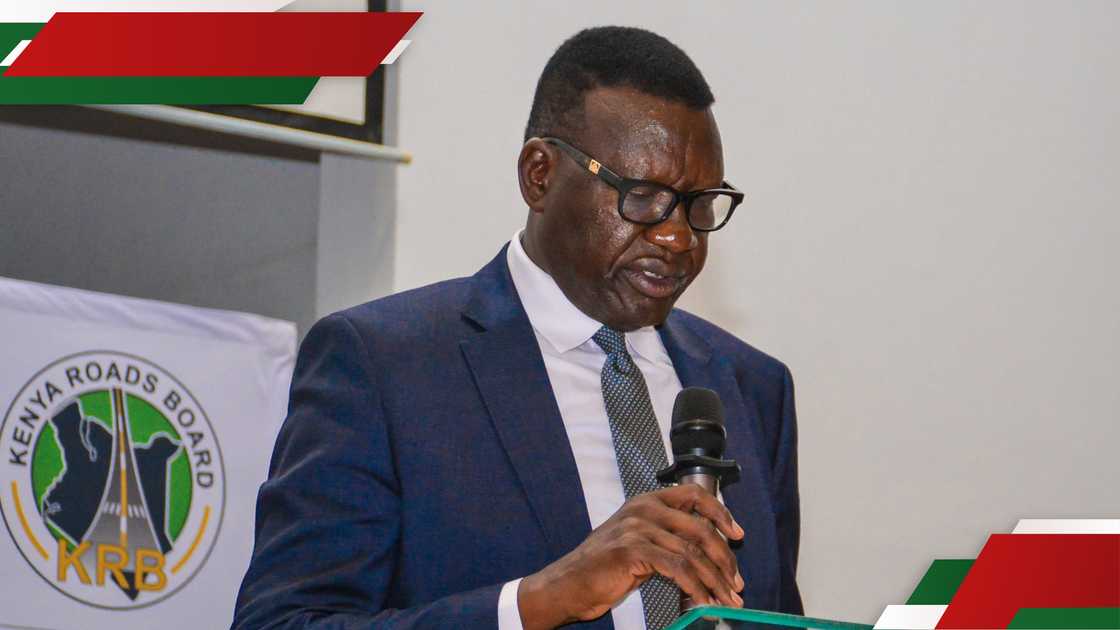- President William Ruto's government continues to plan for the improvement of the country's road transportation infrastructure.
- The government will open up all parts of our country with high-quality infrastructure projects to facilitate trade and regional connectivity, Ruto stated.
- Transport Cabinet Secretary Davis Chirchir disclosed a funding shortfall of over 2 billion Kenyan Shillings in the road maintenance program, suggesting the introduction of new taxes and fees to complement the Road Maintenance Levy (RML)
- Economic specialists claim that this move will put an undue strain on Kenyans, thereby impacting the country's revenue collection goals.
The government plans to implement four new taxes to complement the Road Maintenance Levy (RML).

What are Ruto's plans for road infrastructure?
The President stated that his administration is committed to developing high-quality infrastructure projects to open up all corners of our country.
Ruto stated that these projects will facilitate trade, drive economic development, and boost regional connectivity.
"Economic growth, improved mobility and greater access to essential services will be driven by the expansion of the road network," Ruto stated during an assessment of the 257-km Lamu-Ijara-Garissa road on February 7, 2025.
In order to accomplish this, the state will need extra funding to cover the cost of building and maintaining these roads.
The Ruto administration's strategy for funding road projects.
Transport Cabinet Secretary Davis Chirchir stated that approximately KSh 253.5 billion is required to fund the road maintenance program, emphasizing that revenue from the Road Maintenance Levy (RML) is insufficient.
In the Draft Road Tolling Policy 2025, Chirchir stated that the ideal KRB revenue collection target stands at KShs 132 billion.
There is an immediate necessity to explore several strategies to bridge this funding shortfall. The Draft RSIP III road sub-sector study projects a financial shortfall of approximately KSh 1.8 trillion for a 5-year period and KSh 4.0 trillion for a 10-year period to cover the development, upkeep, and revitalization of roads.
The National Surface Transport Funding Policy (2016-2025) has outlined various measures, including tolling, to generate additional revenue from road users to support the sustainable development, upkeep, and restoration of Kenya's road network," Chirchir stated.
What taxes does the government plan to impose on road users
The policy highlighted several other revenue measures and invited the public to provide their opinions.
The public participation exercise will take place between Monday, February 24 and Thursday, March 13, 2025.
The following taxes and levies are included:
1 Road tolling fees
The government has implemented road tolls under the National Tolling Policy, which proposes tolling on four distinct categories of roads, encompassing newly constructed roads and those that have undergone renovation.
The Nairobi Southern Bypass, the Nairobi-Nakuru-Mau Summit Highway, and the Thika Superhighway are among the highways that could be subject to tolling.
2. Car insurance premium tax
The proposed policy suggests implementing a car insurance premium tax to generate revenue for road projects.
In the previous Finance Bill 2024, the 2.5% levy faced criticism from Kenyans and industry players, prompting the government to drop it.
Motorists would have to pay a minimum of KSh 5,000 and a maximum of KSh 100,000 in addition to their car insurance fees if the new fees were to be reintroduced.
3. Implementing a Congestion Charge
The government also opposed a toll-road congestion management fee.
A toll will be imposed on drivers who use the road, mainly during rush hours, and will help spread traffic more evenly throughout the day, also encouraging the use of alternative routes or modes of transportation.
4. Raising the fuel tax
The National Transport and Safety Authority (NTSA) reported a decrease in vehicle registration among Kenyans.
Several factors have led to a decrease in fuel consumption, resulting in a negative impact on fuel levy collection. The policy mentioned an increase in fuel levy to boost the RML, which was last raised to KSh 25 per litre.
What are the implications of introducing new taxes?
Economic experts believe the government's plan to improve road infrastructure is a positive step, but introducing or increasing taxes on road users will unduly burden Kenyans, ultimately impacting the government's revenue collection goals.
FXPesa market analyst Rufas Kamau cautioned that a rise in fuel taxes will result in increased prices, subsequently leading to decreased economic output.
"Raising or increasing taxes on petroleum products directly affects production and leads to a decrease in economic output," said Kamau
Raising taxes will not solve the government's problems.
Njiri stated that heavy taxation will, in fact, drive away taxpayers, thereby reducing the level of compliance.
He urged the state to explore alternative sources of revenue while implementing fiscal consolidation measures.
"When people feel overwhelmed by tax burdens, tax compliance decreases while tax evasion increases. The government should explore alternative revenue sources and maintain fiscal responsibility during the budget consolidation period," said Njiri.
In December 2024, the World Bank cautioned the government against adopting overly restrictive economic policies, which could further slow down GDP growth.
A report from the International Policy Forum advised reduced borrowing and taxation in 2025 to rebuild fiscal reserves that will help the economy recover from its slowdown in 2024.
What is William Ruto's proposed taxation plan for 2025?
The Kenyan government, headed by President William Ruto, has identified six key areas of focus for the upcoming budget year, with a primary emphasis on broadening the tax base.
The Cabinet approved the KSh 4.2 trillion 2025/26 Budget Policy Statement (BPS), with KSh 3.09 trillion allocated for recurrent expenditure.
The government anticipates collecting KSh 3 trillion in ordinary revenue from taxes and levies, with the deficit to be funded by loans.
What You Need to Know About Taxes in 2025
- The Federation of Kenya Employers (FKE) stated that between 45 and 50% of employees' salaries are absorbed by taxes and deductions.
- Kenya's Treasury Cabinet Secretary, John Mbadi, announced that there will be no extra taxes on income earned from employment in the fiscal year 2025/2026.
